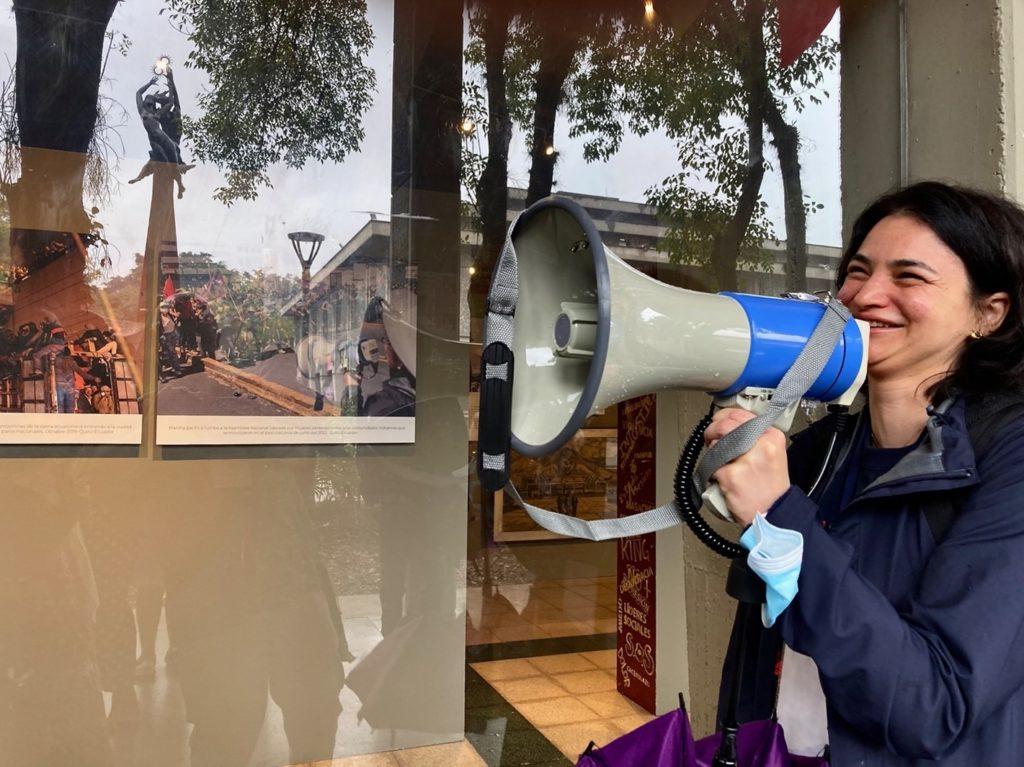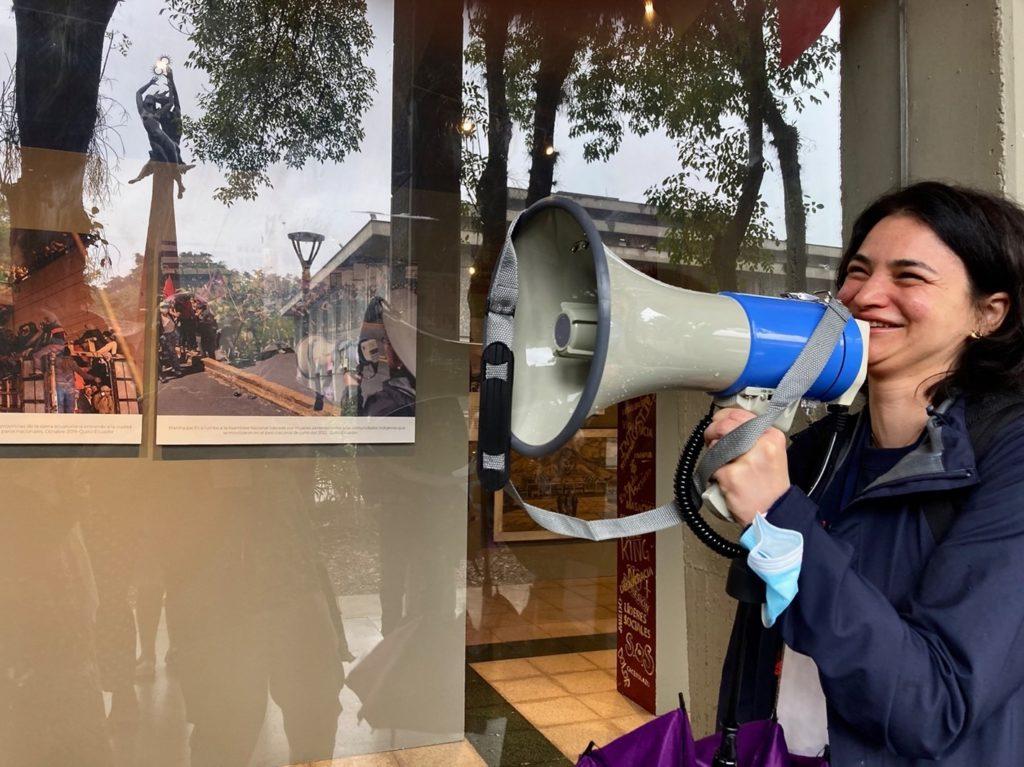
A featured article published in this space on December 19, 2022 was called ‘Confronting the uncomfortable: Emerging voices’ reflections after a talk on decolonization‘. In it, eight EV’s who in Medellín had attended the Face-to-Face part of the EV 2022 venture reflected on a talk on decolonisation I delivered there at Antioquia University on October 28th. I was of course glad to see that my talk had elicited responses: after all, my earlier featured article ‘On decolonisation and Buen vivir’, published here in September in preparation of the EV venture – had received exactly zero comments. I also sincerely thank EV 2022 Farchanda Abdoel Wahid for completing the arduous effort to bring together what she rightly called sharply divergent opinions and different perspectives. Concluding the article, Farchanda asked for readers’ comments and thoughts. I’ve been hopefully waiting for more than a month, but none appeared (the piece created some buzz on Whatsapp and Twitter though). Anyway, here are mine, the one correctly described as “a white, somewhat older European male” (thanks again, Farchanda, for not reducing my identity to those characteristics). I’ll start with a few clarifications on context and form, to go on with a couple of critical thoughts on scope and content.
On context and form
On the speaker being white, not so young anymore, bearing an identity card of a European former colonial power, and apparently male, I can be short. First, I agree with the two voices in the ‘Positive stance’ that “everyone can be heard without being categorized”. In the decolonisation debate and beyond, cancel culture doesn’t take us any step forward. Understanding needs dialectics, and dialectics needs multiple voices, with freedom of speech. Second, of course an indigenous voice would have been preferable, but my presence was the unexpected consequence of external circumstances. Once the team responsible for the preparation of the Face-to-Face venture had identified decolonisation as a topic in need of attention, a local speaker was searched for. While there is no shortage of experts on decolonisation in Colombia and by extension in Latin America, this effort proved unsuccessful. The local academic partner failed to come up with a candidate, and budgetary restrictions did not allow to fly in an extra speaker, not even from Bogotá. Under time pressure, I proposed to give the talk instead, and wrote in preparation the ‘On decolonisation and Buen vivir’ article.
On the speaker “who stood and towered above the cohort of EVs and facilitators sitting on the ground” some contextual clarifications seem warranted. Two considerations led to the decision on location and form: on the one hand the facilitators welcomed a different, less academic form; on the other hand the Colombians among us didn’t want to restrict us to the Public Health Faculty premises – they thought it would be good to also visit their alma mater, the Antioquia University. Indeed, there were good reasons to ‘immerse’ a selection of relatively privileged youngsters in Antioquia University: it happens to be one of these courageous Latin American institutions (think also of the Polytechnic in Mexico or San Marcos in Lima) where rebellious social engagement is still very much alive. Outgoing EV4GH chair Sara Ardila then proposed to drop the academic form entirely and mimic a student activist form on the sidewalk and with megaphone and all. I still think that was a splendid idea, but unhappily ever after, the attendants sat down (even if nobody asked them to do so).
On scope and content
I must admit that I was a bit flabbergasted by the commentaries in the ‘Negative stance’. Not for being accused of “causing discomfort”: that was a deliberate part of the exercise, but content wise.
After all, what I dealt with was not different from the three points I had made earlier in ‘On decolonisation and Buen vivir’, subtitled ‘sharing lessons from Latin America’. First, Latin America is the real-life example of political decolonization (early 19th century, half a century before formal colonization in Africa started) being insufficient to counter colonial injustice. Second, Latin American scholars coined the term ‘coloniality of power’ (the link with capitalism was also explained there) for ongoing colonization, incorporating it in their updated 2019 social determinants framework. Third, with its Buen Vivir decoloniality framework, Latin America shows us a way out, a ‘rethinking of the future we want’.
Adding to this, I further elaborated on the need to conceive and practice the rightful decolonial struggle beyond the narrow limits of health and academics, and on the need to be reflexive on our own position. If the latter caused discomfort, I am glad it did. Don’t we all have a blind eye for our own privileged position? Whom do we speak for? Shouldn’t we ”rethink decolonisation”, as former EV Sana Contractor splendidly argues in her December 2022 BMJ Global Health Editorial? The point here is that as public health voices in North ánd South “we must not fail to problematize our own positions”, if we want to avoid becoming the middlemen (“Zamindars”) of an unfair status quo, and just “preserve the privileged positions of the elites to the detriment of public health”. This kind of reflexivity is needed from all sides, however uncomfortable that may be.

Dear Vikash Ranjan Keshri,
Many blog-like articles fall short in providing references, some have none at all. I tried however to include the needed in hyperlinks: all three quotes in the one but last sentence come from Sana Contractor’s and Jashodara Dasgupta’s editorial, hyperlinked one sentence earlier. I trust that the curious reader who makes the effort to click through will read there that your and Soumyadeep Bhaumik’s editorial https://gh.bmj.com/content/7/9/e010603 is where the term ‘zamindars ‘as manifestation of feudal structures in global health is first used.
Respectfully,
Werner Soors
Dear Prof. Soors,
Thanks for the clarification; though I was not there in Medellin, look like your talk created intense debate.
Though, I enjoyed your talk on ‘solidarity’ as the basis for UHC in my course on ‘Health Policy’ at ITM in 2016.
Regards,
Vikash
Dear Prof. Soors,
Thanks for the clarification; though I was not there in Medellin, look like your talk created intense debate.
Though, I enjoyed your talk on ‘solidarity’ as the basis for UHC in my course on ‘Health Policy’ at ITM in 2016.
Regards,
Vikash
Dear Prof. Soors,
you did not mention a citation for ”Zamindars.”